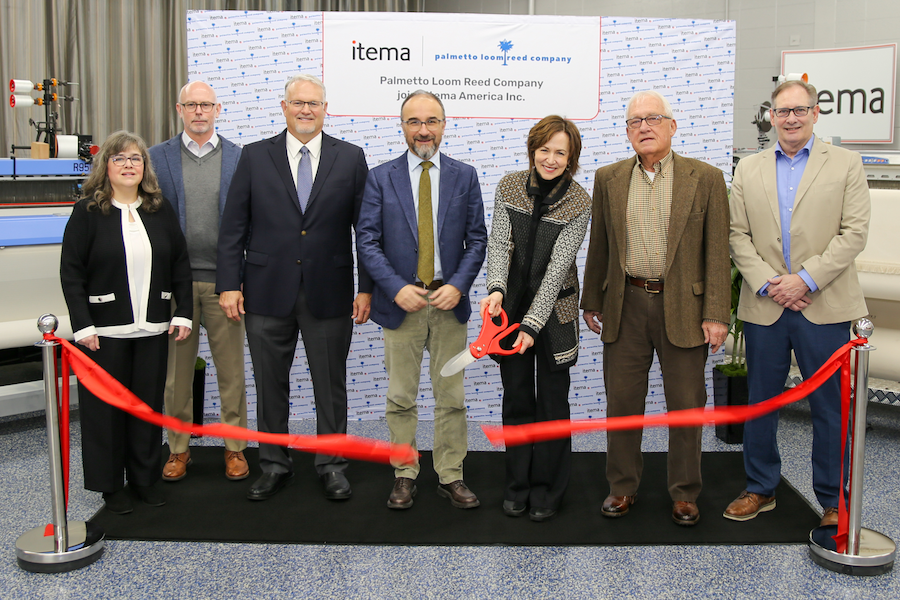#Europe
Policy guidance under the European Semester: Sustaining reforms and investments to secure the EU's long-term prosperity, competitiveness, fairness and resilience
This requires an integrated approach across all policy areas: promoting environmental sustainability, productivity, fairness, and macroeconomic stability. The European Semester provides the policy coordination framework for that purpose, embedding the implementation of the Recovery and Resilience Facility (RRF) and cohesion policy programmes. The European Semester cycle also provides updated reporting on progress towards the delivery of the Sustainable Development Goals across Member States.
An improved outlook amid persistent challenges
The European economy continues to show resilience in a challenging global context.
Lower energy prices, abating supply constraints and a strong labour market supported moderate growth in the first quarter of 2023, dispelling fears of a recession. At the same time, while inflation keeps declining, core inflation has firmed, prompting further tightening of financial conditions.
The Spring 2023 Economic Forecast projects that the EU economy will grow by 1.0% in 2023 and 1.7% in 2024. EU inflation is projected at 6.7% in 2023 and 3.1% in 2024.
Employment growth is forecast at 0.5% this year, before edging down to 0.4% in 2024. The unemployment rate is projected to remain just above 6%.
Effective implementation of Recovery and Resilience Facility and cohesion policy: crucial drivers of a robust and future-proof EU economy
Two years into its implementation, the RRF – at the heart of the €800 billion NextGenerationEU recovery plan for Europe - continues to accelerate a fair and inclusive green and digital transition in every Member State, strengthening the resilience of the EU as a whole. The European Semester embeds the implementation of the RRF, and of cohesion policy programmes in a complementary way, and provides policy guidance to Member States on key economic and social challenges.
With all national recovery and resilience plans in place and 24 payment requests processed to date, the Commission has disbursed over €152 billion under the Facility for the successful implementation of key reforms and investments. Member States should continue the implementation momentum of their plans and proceed with the swift implementation of cohesion policy programmes. Member States should continue their progress to decarbonise the EU's economy and industrial base, address labour and skills shortages and mismatches, support the creation of quality jobs, scale up research and innovation, and create the conditions to secure the EU's long-term prosperity, competitiveness, fairness and resilience. The inclusion of REPowerEU chapters in Member States' plans, coming with additional funding, will help address the EU's challenges in energy security and accelerate the shift towards clean energy supplies and a net-zero economy.
Targeted recommendations to Member States to support the green and digital transitions and enhance competitiveness
The 2023 country reports take stock of the specific socio-economic challenges in every Member State, including those related to the twin transitions and competitiveness, and outline to what extent these are being addressed in the countries' recovery and resilience plans. The Commission proposes country-specific recommendations to provide guidance to Member States on how to tackle key economic and social challenges that are only partially or not addressed in their recovery and resilience plans. These recommendations will also help implement the Green Deal Industrial Plan.
The country-specific recommendations are divided into four parts:
• A recommendation on fiscal policy, including fiscal-structural reforms, where relevant;
• A recommendation to continue or accelerate implementation of national recovery and resilience plans, including their revisions and the integration of REPowerEU chapters, taking into account potential country-specific implementation risks, and to swiftly implement the adopted cohesion policy programmes;
• An updated and more specific recommendation on energy policy in line with the REPowerEU objectives; and
• Where relevant, an additional recommendation on outstanding and/or newly emerging structural challenges.
Fiscal guidance
Moving out of the period when the general escape clause was in force, the Commission is again providing quantified and differentiated country-specific recommendations on fiscal policy:
• Member States that have attained their medium-term budgetary objective (the budgetary target set for each country as part of the Stability and Growth Pact), based on the 2023 Spring Forecast, are asked to maintain a sound fiscal position in 2024.
• All other Member States are asked to ensure a prudent fiscal policy, in particular by limiting the nominal increase in nationally financed net primary expenditure in 2024.
• All Member States should preserve nationally financed public investment and ensure the effective absorption of grants under the Recovery and Resilience Facility, and other EU funds, in particular to foster the green and digital transitions.
• All Member States should wind down the energy support measures in force by the end of 2023. Should renewed energy price increases require the implementation of support measures, these should be targeted at protecting vulnerable households and firms, fiscally affordable, and preserve incentives for energy savings.
• For the period beyond 2024, Member States should continue to pursue a medium-term fiscal strategy of gradual and sustainable consolidation, combined with investments and reforms conducive to higher sustainable growth, to achieve a prudent medium-term fiscal position.
Report on compliance with the deficit and debt criteria of the Treaty
The Commission prepared a report under Article 126(3) of the Treaty on the Functioning of the EU for 16 Member States: Belgium, Bulgaria, Czechia, Germany, Estonia, Spain, France, Italy, Latvia, Hungary, Malta, Austria, Poland, Slovenia, Slovakia and Finland. The purpose of this report is to assess Member States' compliance with the deficit and debt criteria of the Treaty.
The report finds that the deficit criterion is not fulfilled by Belgium, Bulgaria, Czechia, Germany, Estonia, Spain, France, Italy, Latvia, Hungary, Malta, Poland, Slovenia and Slovakia.
Taking into account all relevant factors, the report finds that the debt criterion is not fulfilled by France, Italy and Finland. Nevertheless, the Commission considers that compliance with the debt reduction benchmark is not warranted under the prevailing economic conditions.
The Commission will propose to the Council to open deficit-based excessive deficit procedures in spring 2024 on the basis of the outturn data for 2023.
Addressing macroeconomic imbalances
The Commission has assessed the existence of macroeconomic imbalances for the 17 Member States selected for in-depth reviews in the 2023 Alert Mechanism Report:
• Cyprus is experiencing imbalances after experiencing excessive imbalances until 2022 as vulnerabilities related to private, government, and external debt have overall declined but remain a concern.
• Hungary is now found to be experiencing imbalances. Risks are tilted on the downside, and imbalances may become excessive in the future if policy action is not urgently taken.
• Germany, Spain, France, the Netherlands, Portugal, Romania, and Sweden continue to experience imbalances.
Among the countries with imbalances, risks in Romania are tilted on the downside, and imbalances may become excessive in the future if policy action is not urgently taken. On the other hand, vulnerabilities are receding in Germany, Spain, France, and Portugal to the extent that a continuation of these trends next year would provide ground for a decision of no imbalances.
• Greece and Italy continue to experience excessive imbalances, but their vulnerabilities appear to be receding, including due to policy progress.
• Czechia, Estonia, Latvia, Lithuania, Luxembourg, and Slovakia are not found to be experiencing imbalances as vulnerabilities seem overall to be contained at present.
Post-programme surveillance reports
Post-programme surveillance assesses the economic, fiscal and financial situation of Member States that have benefited from financial assistance programmes with a view to their repayment capacity. The post-programme surveillance reports for Ireland, Greece, Spain, Cyprus and Portugal conclude that all five Member States retain the capacity to repay their debt.
Employment guidelines
The Commission is proposing guidelines for Member States' employment policies in 2023. These guidelines set common priorities for national employment and social policies to make them fairer and more inclusive. The current Guidelines, adopted in November 2022, already reflect the post-COVID environment and Russia's war of aggression against Ukraine. This is why the Commission proposes to carry over the current Employment Guidelines to 2023.
In addition, the Guidelines make reference to recent policy initiatives. The Guidelines also refer to the European Year of Skills, which provides a fresh impetus to engage partners and mobilise funding to address skills and labour shortages. Finally, the Commission underlines the importance of monitoring progress towards the EU 2030 headline targets, and contributing national targets, in the area of jobs, skills and poverty reduction.
Next steps
The Commission invites the Eurogroup and the Council to discuss the package and to endorse the guidance offered today. It looks forward to engaging in a constructive dialogue with the European Parliament on the contents of this package and each subsequent step in the European Semester cycle.















